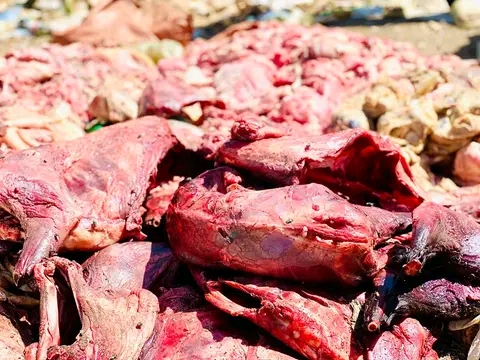Lusaka City Council Discards Unfit Meat Amid Anthrax Outbreak
On November 4th, 2023, the Lusaka City Council (LCC) swiftly took action by disposing of approximately 900 kilograms (KGs) of assorted meat products that failed to meet essential public health guidelines.
This action is especially pertinent amid the ongoing Anthrax outbreak affecting various parts of the country, including Lusaka.
In an official statement released by Nyambe Bulumba, LCC Public Relations Officer, the decision to discard the meat followed a series of inspections conducted by the Council’s Public Health Department.
In his statement these inspections revealed that many meat products lacked the necessary documentation to confirm that they had undergone inspection by health authorities, certifying them as safe for human consumption.
Mr. Bulumba added that butcheries, abattoirs, and retail shops selling the meat were found to be in violation of the Public Health Act, as stipulated in Chapter 295 of the laws of Zambia.
Consequently, he said that the Local Authority seized the meat products to safeguard the health of the city’s residents.
The Lusaka City Council responsibly disposed of the unsuitable meat by incineration, aiming to prevent the further spread of the Anthrax disease, as he stated.
Mr. Bulumba has warned business owners and operators dealing with food products, emphasizing the importance of complying with the Public Health Act and the Food Safety Act. This compliance is essential to protect the public from preventable infections.
To maintain public health and safety standards, Mr. Bulumba stated that the Council will continue to conduct inspections on meat and other food items throughout Lusaka City, ensuring that all food products meet the required health standards.
He further urged the general public to purchase certified meat only from authorized and reputable sources.
As reported by the Ministry of Health, Lusaka has recorded 13 cases of Anthrax thus far. The Lusaka City Council remains committed to taking necessary actions to prevent the spread of the disease and ensure the well-being of its citizens.



